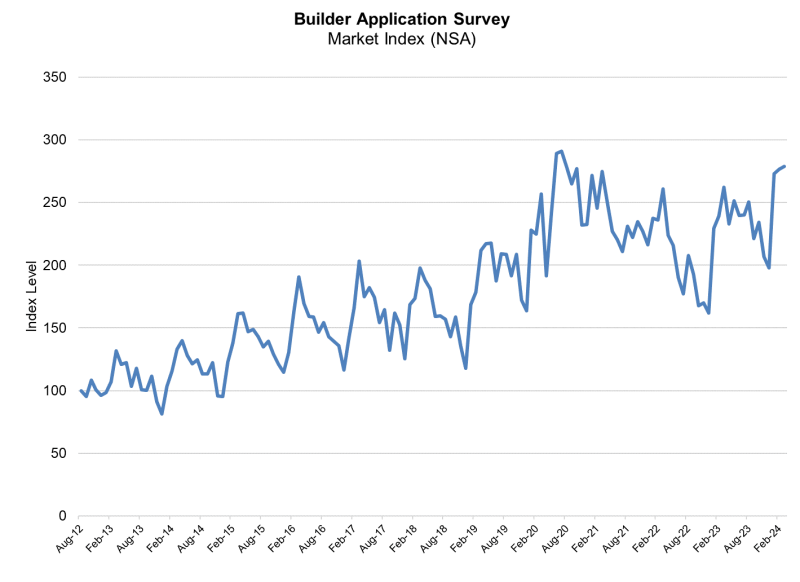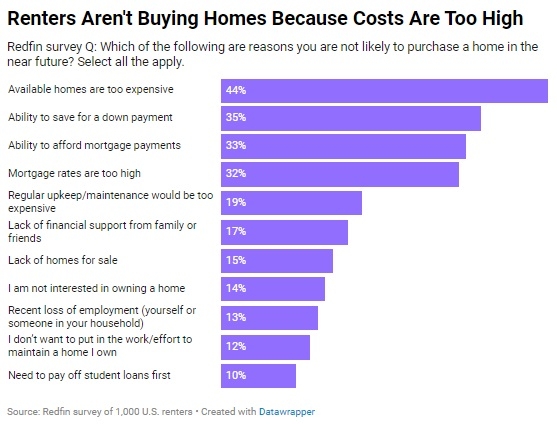Advertisement
InterBay signs Aikman and Howe for 2007 campaigns
Big opportunities from small-balance commercial mortgagesScott Riellymulti-family, mixed-use, fees, residential mortgage market
The small-balance commercial mortgage market is anything but
small.
Loans on multi-family, mixed-use and other commercial property
valued at $5 million or below make up a market of some $130 billion
per year. This is despite the fact that more than 20 percent of
commercial property sales at these values include no debt,
according to research published by the Mortgage Bankers Association of
America. What's more, five percent of the financed transactions
involve private party or seller financing instead of a traditional
institutional lender. And while refinancing might be stagnating in
the residential market, it is growing in the small-balance
commercial market.
If you need more reasons to pursue this market, try these:
1. Fees on small-balance commercial mortgages can be
significantly higher than those on residential loans. The highly
competitive and transparent residential mortgage market has
compressed origination fees for both purchases and refinancings.
Small-balance commercial mortgage fees, on the other hand, are
typically one to three points. Moreover, average loan amounts for
small-balance commercial mortgages are generally higher than loan
amounts for residential mortgages.
2. You should have no trouble finding borrowers. You can start by
talking to your existing residential borrowers. Many buyers of
small commercial properties are affluent investors seeking to
diversify their investment portfolios. First-time buyers often go
to bankers, brokers or financial advisors with whom they already
have relationships. With typically strong credit scores, these
investors are excellent prospects. Refinancing offers additional
opportunities. Many small-balance commercial properties are owned
outright or have existing financing with onerous rates and terms,
including balloon payments.
Yet many residential lenders and brokers shy away from the
small-balance commercial market. One reason is that the origination
process is more complicated and more expensive than that which is
associated with residential lending. Residential underwriting often
requires little more than a borrower's credit report and an
appraisal based on comparables. But to underwrite a small-balance
commercial mortgage properly, the lender must evaluate the property
and the borrower's credit.
Property analysis includes inspections, environmental
assessments, rent rolls, lease reviews, renovation costs, occupancy
rates and other market data. Unfortunately, this is true for all
such loans, no matter how small. Many residential originators
simply lack the expertise or resources to conduct this analysis.
Another reason for hesitation is the relatively long time period to
close commercial loans - 90 days or more in most cases. This
creates more fallout risk than residential loans' shorter time
frames.
Even if a lender has the resources and proficiency to underwrite
small-balance commercial mortgages, the secondary market is much
less developed than for residential loans. It's harder for lenders
to sell small-balance commercial mortgages - a potential problem if
they're not originating loans for portfolio.
A well-funded partner with access to the capital markets can
mitigate all these potential issues. Such a partner offers
underwriting flexibility because it can diversify risk among the
many loans it purchases and securitizes. The partner may also enjoy
certain economies of scale, such as access to a blanket
environmental insurance policy. As a result, the partner can help
lenders and brokers originate a broader range of small-balance
commercial mortgages.
You should seek an experienced partner that has an appetite for
loans and an efficient turnkey process that minimizes costs and
speeds time to closing. Because the process itself is generally the
most significant impediment, look for a partner who offers a proven
one - from pre-qualification to application to third-party services
and through to closing. This enables you to offer more competitive
rates, better service and higher likelihood of closing.
A good partner can transform your small-balance commercial
mortgage activity from a sideline to a core business with long-term
benefits. Lenders who originate these loans will see more than
revenue growth. Since the loans can be sold rather than retained in
portfolio, lenders will also see growth in return on assets and
return on equity, two key measures of lenders' efficiency and
overall performance (and often key determinants of senior
management compensation). For public financial institutions, return
on assets and return on equity are important signs of healthy
financial performance.
Here are key qualities to seek in a partner:
-Does the partner offer both fixed and floating rates - a broad
enough mix to meet borrowers' wide-ranging needs? Do the partner's
rates and yield-spread premiums ensure your profitability?
-Does the partner have clear and easily implemented underwriting
guidelines? You cannot afford to evaluate every small-balance
commercial mortgage application in isolation and then wonder
whether you'll find a buyer. The partner should provide standard
guidelines that make the loan-approval decision almost
automatic.
-Can the partner supply a comprehensive package of third-party
services, such as appraisals, inspections, legal documentation and
environmental insurance?
-Does the partner have an efficient Web-based process that ensures
quick closings (as fast as 30 days) and lowers fixed labor costs so
you can offer more competitive rates?
-Does the partnership position you well for the future when the
small-balance commercial mortgage becomes more of a commodity, like
residential mortgages?
-Does the partner compete with you? Or do they work exclusively
with originators and not directly with borrowers? The last thing
you want is a funding partner who is also your competitor.
-Can the partner provide additional value-added services, such as
marketing support and lead generation?
-How sophisticated is the partner? The small-balance commercial
mortgage business is fragmented primarily because there's no
efficient secondary market for these loans. You want a partner who
knows and understands the capital markets and has a successful
track record of securitizing small-balance commercial
mortgages.
Lastly, is the purchaser of your loans also a principal in the
securitization? An institution that purchases loans merely to
resell them is quite different from a long-term partner who retains
ownership of non-rated and non-investment-grade bonds from
securitizations. A true partner with skin in the game will likely
have a better appreciation of the risk and will be not only capable
of but also empowered to make underwriting decisions based on a
thoughtful analysis of all relative factors. With this type of
partner, you'll have a steady supply of table funding, your rates
will be competitive, your loans will close and you'll build a
strong reputation among your borrowers.
Scott Rielly is executive vice president of Stamford,
Conn.-based CBA Commercial
LLC. He may be reached at [email protected].
About the author





